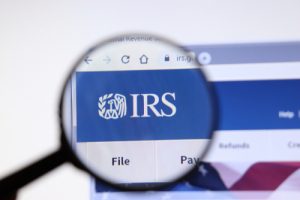
U.S. Rep. Mike Kelly (R-PA) recently led 17 Republicans on the U.S. House Ways and Means Committee in proposing legislation to prevent the Internal Revenue Service (IRS) being used against Americans because of their political beliefs.
“Americans should be able to donate to causes they believe in without fear of retribution from Washington bureaucrats who have a long, sad history of targeting individuals and organizations because of their political beliefs,” Rep. Kelly said.
The congressman on July 30 sponsored the Don’t Weaponize the IRS Act, H.R. 4889, with original cosponsors including U.S. Reps. Jackie Walorski (R-IN), Lloyd Smucker (R-PA), Carol Miller (R-WV), Tom Rice (R-SC), Vern Buchanan (R-FL), Ron Estes (R-KS), Brad Wenstrup (R-OH), and Darin LaHood (R-IL). Companion legislation, S. 1777, was introduced in May by U.S. Sen. Mike Braun (R-IN) and 43 Republican original cosponsors.
In May 2020, the Trump administration issued a rule that ended the requirement that 501(c)4 organizations report the names and addresses of donors to the IRS on annual tax returns, according to information provided by Rep. Kelly’s office, which said that the rule was implemented to prevent the IRS from revealing donors’ private information, which could subject them to harassment by activists. Former U.S. Treasury Secretary Steven Mnuchin determined that the information was not necessary for tax administration purposes.
If enacted, the measure would codify regulations promulgated by the Trump administration exempting certain tax-exempt organizations from specified reporting requirements, according to the congressional record summary of the bill.
Specifically, the bill would increase from $5,000 to $50,000 the gross receipts threshold used to determine the eligibility of tax-exempt organizations for the exemption from certain disclosure and reporting requirements; expand the definition of organization to include tax-exempt charitable organizations and organizations with no significant activities relating to lobbying, political activity, and the operation of a trade or business; exempt from disclosure the names and addresses of contributors to an organization in its annual informational return; and extend exemptions from reporting requirements to political action committees, the summary says.



